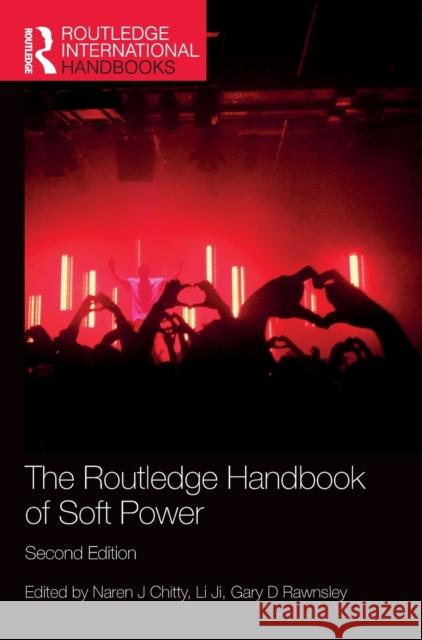The Routledge Handbook of Soft Power » książka
The Routledge Handbook of Soft Power
ISBN-13: 9781032039268 / Angielski / Twarda / 2023 / 448 str.
The Routledge Handbook of Soft Power
ISBN-13: 9781032039268 / Angielski / Twarda / 2023 / 448 str.
(netto: 1093,93 VAT: 5%)
Najniższa cena z 30 dni: 1064,33
ok. 16-18 dni roboczych.
Darmowa dostawa!
The Routledge Handbook of Soft Power (second edition) offers a comprehensive, detailed, and ground-breaking examination of soft power – a key factor in cultural diplomacy, cultural relations, and public diplomacy. Interrogating soft power as influence the handbook examines manifestations in media, public mind, policy and theory - in a fraught geopolitical climate, one demanding reconceptualization of soft power’s role in state and civic society behaviour. • Part One provides important new conceptualization and critical analysis of soft power from international relations, philosophical and other social theoretical perspectives; analyses multiple methods of soft power measurement and makes proposals; connects soft power innovatively with other concepts.• Part Two addresses soft power and contemporary issues; examining new technology and soft power intentions, soft power and states’ performance during the global pandemic; and soft power and values. • Part Three investigates cases from China, France, Greece, Israel, Japan, Kazhakstan, Poland, Russia, South Korea, Spain, Türkiye, and USA – some in combination. This innovative handbook is a definitive resource for inquirers into soft power desiring to familiarize themselves with cutting-edge debates and research. It will be of interest and value to students, researchers and policy makers working in cultural relations, international communication, international relations, public diplomacy, and contiguous fields.
The Routledge Handbook of Soft Power (second edition) offers a comprehensive, detailed, and ground-breaking examination of soft power – a key factor in cultural diplomacy, cultural relations, and public diplomacy. Interrogating soft power as influence the handbook examines manifestations in media, public mind, policy and theory - in a fraught geopolitical climate, one demanding reconceptualization of soft power’s role in state and civic society behaviour.
• Part One provides important new conceptualization and critical analysis of soft power from international relations, philosophical and other social theoretical perspectives; analyses multiple methods of soft power measurement and makes proposals; connects soft power innovatively with other concepts.
• Part Two addresses soft power and contemporary issues; examining new technology and soft power intentions, soft power and states’ performance during the global pandemic; and soft power and values.
• Part Three investigates cases from China, France, Greece, Israel, Japan, Kazhakstan, Poland, Russia, South Korea, Spain, Türkiye, and USA – some in combination.
This innovative handbook is a definitive resource for inquirers into soft power desiring to familiarize themselves with cutting-edge debates and research. It will be of interest and value to students, researchers and policy makers working in cultural relations, international communication, international relations, public diplomacy, and contiguous fields.











